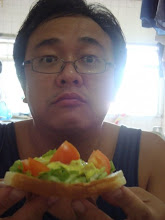"We Asians look young until we hit 50, then we look like we are 500 years old." Dat Phan, Vietnamese-American comedian.
The topic of age is not something Asians shy away from unlike our friends from the West. Recently, my English friend showed me a picture of her parents and her sister. Innocently, I asked if the sister is younger than she is. She rather quickly pointed out that my remark was less than tactful. This led to an interesting conversation about the different attitudes people from the East and West have towards aging. Rita then shared that in England women avoid admitting their age—until they hit 70, that is. Then it becomes a competition who is older! My teacher, the late Dr J.D. Douglas, used to remind us that there are several things you never ask a Scotsman, the most important being how old he is, and secondly, what he wears under his kilt.
Why are we Chinese so curious about people's age? I suspect we are trained from a young age to suss out the age of people we meet so that we can quickly determine what is our position relative to him or her according to society's seniority pecking order.If the other person is older,we know we need to show some measure of deference and respect. And if he or she is younger, hmmm...possibilities!
At the UK Boarding House Association Conference I attended some years ago, Director of Training, Tim Holgate, gave a case study of how an Asian boy got into trouble. He had become very good friends with a younger boy. But despite their closeness, one day the younger boy reported to his house master that he was being bullied by the older boy. The older boy was devastated by this allegation. When an investigation was launched they discovered that the older boy had been treating his younger buddy just as he would his younger brother. And operating within his hierarchical framework the Asian boy viewed it as the duty of an "older brother" to protect and guide the younger boy and in return it was perfectly reasonable to expect the younger boy to run errands and do stuff for him. However, the younger boy felt he was being imposed upon. A classic case of a clash of cultural expectations.
Extending this line of reasoning, I am guessing it is probably for the same reason that we address an older man who is unrelated to us as “Uncle” and a woman as “Aunty”. Stories are plentiful about Asians studying in the States who inadvertently annoy their American hosts by addressing them as Uncle or Aunty. One friend even reported a stiff rebuke he received: “I’m not your Uncle!”
The Uncle-Aunty practice probably reflects two things: one is the belief that we all have our place within a social order which we should accept, and secondly, I like to believe it is a recognition of the close bond we have with each other even if we are not related by blood. This is the idea of the brotherhood of man where everyone is everyone else’s brother, sister, father, mother, uncle, aunty and grandma and grandpa. The whole community and society is one big family.
This practice does not seem to be limited to the Chinese. As far as I know, this at the very least, applies also to the Indonesians and Malays. For the latter, an elderly man is addressed as “Bapak” (meaning ‘father’) or just “Pak” for short, and an older woman as “Ibu”, often shortened to “Bu”. Similarly, for the Malays it is "Pakcik" or "Makcik" (Uncle or Aunty).
Collectives
12 years ago

No comments:
Post a Comment